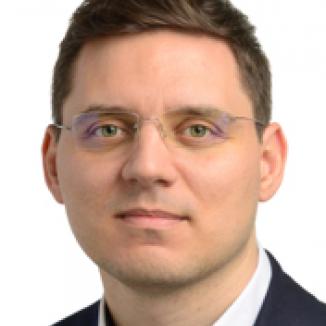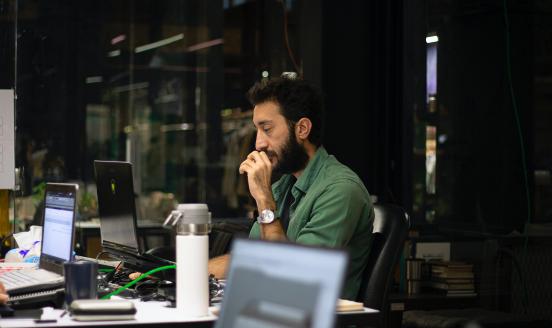Up and ahead: skills for a more resilient EU workforce
How can we equip people with the skills they need to adapt to a rapidly changing labour market?
Speakers
Julie Fionda
Deputy Head of Unit, Skills Agenda, European Commission, DG EMPL
El Iza Mohamedou
Head of the Centre for Skills, OECD
Laurence Morvan
Chief of Staff to the Europe CEO, Accenture
Victor Negrescu
Vice-Chair, Committee on Culture and Education, European Parliament
Glenda Quintini
Senior Economist, OECD
Delphine Rudelli
Director General, CEEMET
David Timis
Global Communications Manager, Generation
Key takeaways
- People recognise the need for life-long learning but do not feel the need to participate in training themselves, creating a paradox in the perception of education.
- Career guidance and reskilling programs are crucial in addressing skill shortages and unemployment, and they should involve the employers.
- Vocational education and training (VET) programme is a vital part of the well-functioning training infrastructure, but the image of VET needs improvement.
- The fast shifts in employee-task matches after the COVID pandemic emphasise the need for workers to be equipped with the necessary flexibility and general skills.
Summary
Session 1
El Iza Mohamedou listed unemployment and the transition from school to the workplace as the biggest challenges facing young workers, who are 2,5 times more likely to be unemployed than older workers in OECD countries. Delphine Rudelli added that unemployment is accompanied by a skill shortage in manufacturing industries. To combat this, societies need programs promoting STEM and VET education, and reducing the education-workplace gap.
David Timis asserted that career guidance should always complement reskilling programmes. He mentioned that many reskilling providers do not connect with employers, which is crucial. Another important aspect is providing subsidies for trainees, which is not universal either.
Another part of the discussion focused on Vocational Education and Training (VET). According to Delphine Rudelli, working in manufacturing is not popular among workers and there may be a problem with VET image. El Iza Mohamedou agreed that improving the image of VET is important. According to her, VET provides young workers with higher wages faster than general education.
Victor Marinescu emphasised the importance of building synergies across member states and collaborating between policymakers and local stakeholders. He suggested that reskilling programs can be more effective by focusing on skills rather than occupations. According to him, events like this one are essential in making sure that we move from speeches to concrete actions.
Following a question from Laura Nurski, participants discussed promoting STEM careers among women by breaking gender stereotypes through early education and role models.
In response to a question about working conditions, El Iza Mohamedou suggested employers open more apprenticeship positions and Victor Negrescu added that more work needs to be done on the Commission level when it comes to the industry side of the labour market. This support should indeed include apprenticeship subsidisation.
The participants agreed that unpaid internships should not be allowed. According to Victor Marinescu, professional activity bringing value to the employer should be paid, and upskilling should be provided by employers because they increase the productivity of employees. El Iza Mohamedou stressed that unpaid internships may further disadvantage already vulnerable workers.
"You cannot be what you can’t see."
El Iza Mohamedou (about women in STEM)
Session 2
Laura Nurski kicked-off the conversation by asking participants how to help workers gain future-suitable skills and how organisations can foster learning-friendly environments.
Glenda Quintini pointed to recent research on the skills required for the green transition.
Julie Fionda added that current transition provides challenges but also opportunities. For example, clean technology doubled investment in Europe since 2020. DG EMPL will shortly announce Green Deal Industrial Strategy with skills being one of its pillars.
Laurence Morvan reported that many companies are trying to better understand the skills of their employees, but that HR infrastructure must change to keep up the pace.
Jurgen Siebel mentioned that people recognise the need for life-long learning. But this does not translate into high participation rates in learning programmes. Paradoxically, people do not feel a need to participate in training, even though they believe in life-long education.
Julie Fionda added that people must see the positive outcomes of training, such as a wage increase, to be motivated to participate. The challenge is to create a culture of learning and answer the question "what's in it for me?"
Notes by Kamil Sekut.
This event was organised within the project “Future of Work and Inclusive Growth in Europe“, with the support of the Mastercard Center for Inclusive Growth.











